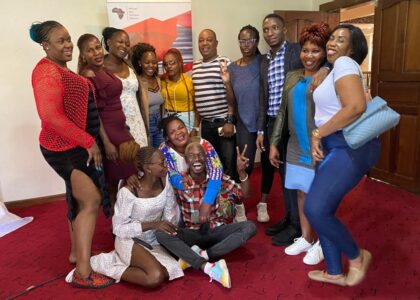
The second Sex Workers Academy Africa (SWAA) this year kicks off today with 18 participants from Seychelles, Malawi and Kenya attending.
This is the 21st edition since the inception of the innovative Academy in 2014 that has greatly led to building of a vibrant sex worker-led movement in Africa.
A notable aspect of this Academy is the fact that this is the first time ever sex workers from Seychelles are taking part. Significantly, it has taken over a year of mobilising the group due a myriad of challenges such as the country’s landscape – it is an archipelago of about 115 islands in the Indian Ocean – lack of valid travel documents and the fact that the sex worker movement in Seychelles is barely organised.
“To get the group attending this Academy, I had to keep travelling to various islands in the country to find them,” Ronny Arnephy, the leader of Lesbian Gay Bisexual Transgender Intersex Seychelles (LGBTI-Sey).
Sex work is illegal in the country, which exposes sex workers to violence from police, family members and clients. Pimping, and brothel keeping is criminalised under the anti-human trafficking law, which does not distinguish between sex work and sexual exploitation by human traffickers. The convolution of sex work and human trafficking has made sex workers vulnerable to human rights abuse especially in the small islands.
Ronny says sex workers are victimised because they are perceived as carriers of diseases such as STIs and HIV.
“Violence against sex workers is high based on a study conducted in 2015. Their children are also bullied at home and school,” she says.
She says substance dependency mainly heroin is high among sex workers.
On health care, Ronny says: “There are no services targeting for sex workers and therefore they access general health services that is available for everyone which might not necessarily meet their needs.”
This are part of the challenges cited in the Convention on the Elimination of all Forms of Discrimination Against Women (CEDAW) Shadow Report submitted by NSWP with input from Ronny.
“NSWP through ASWA reaching out to me came an opportune time because the current political environment is right to advocate on issues around sex work. Advocacy at this level is required as it will enable the Government of Seychelles to really think deeply in enacting those laws that do not make sense and that are continuously discriminating against sex workers,” she says.
This is the second time for Malawi to attend. One of the outcomes of attending their first SWAA was the establishment of a national network, the Malawi Sex Workers Association (MASWA).
Sex work is not illegal in the country, however, living off its earnings is. Unable to enforce this, police use the law on vagrancy that states that: “Every person in or upon or near any premises or in any road or highway or any place adjacent thereto or in any public place at such time and under such circumstances as to lead to the conclusion that such person is there for an illegal or disorderly purpose, is deemed a rogue and vagabond.”
On paper, the country’s High Court has declared this section of the Penal Code as unconstitutional and invalid since 2017. However, the police still use it to exploit and abuse sex workers.


